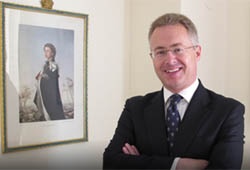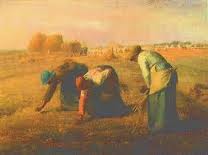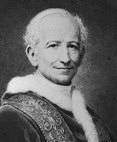Faith & the Public Order: September 2011 Archives

This morning Pope Benedict XVI received the new Ambassador of Great Britain to the Holy See, Nigel Marcus Baker in an audeince where the new ambassador presented his credentials to the Pope.
Ambassador Nigel Marcus Baker, 45, succeeds Francis Campbell who moved after a term of service to the Holy See to another post. The new ambassador has worked with his country's diplomatic service in Central Europe and in South America; recently he was in Bolivia. Baker has worked in the Private Office of Prince Charles and for two years lived and studied in Italy. He's married and has one son.
Today's address is basically diplo-speak, but there are a few points made by Benedict which are worth thinking about today. I am especially focussing on the Pope's mention of charity, values, relativism, ecomony, and education. In part, the Pope spoke of the UK stituation of government but what he said has implications in the US:

 When Pope XIII published Rerum Novarum (On the Condition of Labour) in 1892, it was considered a brilliant piece of thinking on the Church walking closely with the average man and woman because it demonstrated that in reality, once again, the Church situated herself in the reality of human existence: in the social, political and economic spheres with a keen recognition of human dignity; the protection of basic economic and political rights, including the right to a just wage and to organize associations or unions to defend just claims; the right to private property; the rights of labor over capital; the just organizations of society for the common good.
When Pope XIII published Rerum Novarum (On the Condition of Labour) in 1892, it was considered a brilliant piece of thinking on the Church walking closely with the average man and woman because it demonstrated that in reality, once again, the Church situated herself in the reality of human existence: in the social, political and economic spheres with a keen recognition of human dignity; the protection of basic economic and political rights, including the right to a just wage and to organize associations or unions to defend just claims; the right to private property; the rights of labor over capital; the just organizations of society for the common good.
Pope Leo rejected not only a communistic philosophy but he did not ignore the basis of its appeal to workers and condemned the exploitative nature of the liberal-capitalist alternative. He wanted the Church on all levels to be engaged with the social order which slowly took shape in the later years of the 19th century and then in the 20th and 21st centuries.


